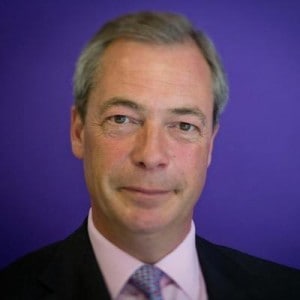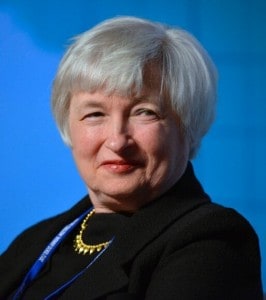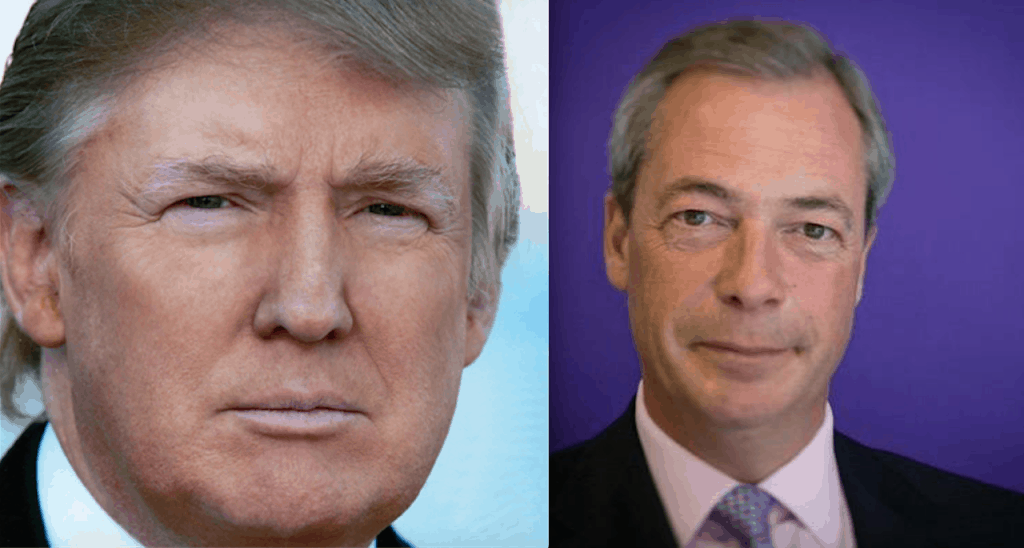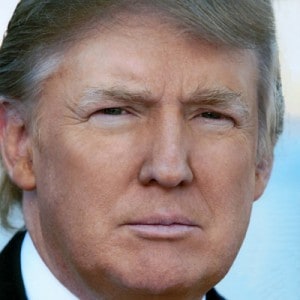2016 was a year of backlash. Western ruling elites took a beating. Here is a look back at what happened:
Events of the year
10. Fidel Castro Death
Numerous celebrity deaths grabbed international headlines in 2016, but none of those figures significantly impacted millions of people’s lives the way Cuba’s longtime communist leader, Fidel Castro, did. In addition to impacting lives, Castro is widely viewed as being directly responsible for thousands of deaths. Following Castro’s death, Canadian Prime Minister Justin Trudeau released a statement saying he was “mourning the loss of this remarkable leader.” Is the communist ideology alive and well in the West?
9. Orlando night club shooting
In a year in which there were numerous police shootings and even shootings of officers in the U.S., the Orlando night club attack stood out because of its death toll — 49. Also, an ISIS supporter attacking a gay night club fits the narrative of the Muslim terror threat to the West.
Following the massacre, a debate raged over whether gun violence or Islamic terrorism is a bigger threat in the U.S. The shooting also highlighted the growing division in the country. Both racial and cultural division were evident in 2016.
8. Nice terror attack
The Bastille Day massacre in Nice primarily cracks the top 10 because it was the most deadly attack in Europe in a year of high-profile terrorism. Attacks in Istanbul, Brussels and Berlin helped keep the Islamic terror threat on the minds of many Europeans in 2016, some of whom brought their concerns with them to the polls.
The Nice attack also showcased the relatively novel idea of driving a truck through a crowd of Europeans, a phenomenon that could be morphing into a trend.
7. Panama Papers release
While the Panama Papers exposed corruption in certain places convenient for top western officials, the 11.5 million leaked documents about offshore assets also spotlighted the war between indebted governments and tax evaders. Put differently, the battle is between the taxman and individuals who are finding creative ways to stop the government from stealing their money. In that sense, the Panama Papers may serve as an instruction manual.
On a separate note, the Panama Papers ushered in a year of highly publicized hacks and leaks.
6. Cologne sexual assaults
2016 began with mass sexual assaults on New Year’s Eve in Cologne, Germany, though news of the incident did not spread for several days, allegedly due to a coverup. More so than any terror attack, the Cologne incident swung European sentiment against the refugees and migrants whom German Chancellor Angela Merkel had welcomed in just four months prior.
5. Iran deal
The nuclear deal between Iran and world powers, U.S. President Barack Obama’s signature foreign policy achievement, brought Iran in from the cold. Sanctions were lifted and Iranian oil poured onto already flooded world markets. The Iran deal could very well set off an arms race in the Middle East. It could also be shredded by incoming U.S. president Donald Trump.
4. Turkish coup attempt
The botched Turkish coup on July 15 was probably the most dramatic event of the year. It also carried major significance and kicked off a purge in Turkey. Rather than losing both his power and his life, Turkish President Recep Erdogan ended up being afforded an opportunity to consolidate his control, as well as to advance his effort to rewrite Turkey’s constitution and change the country’s system of governance.
3. Bombardment and Fall of Aleppo
2016 was a pivotal year in the Syrian cvil war, and the action centered around Aleppo. The Assad regime, with the aid of Russian airpower and Iranian-backed militias, laid a bloody siege to the Syrian city and recaptured it by the end of the year. Civilians paid a steep price throughout the battle.
At least for now, the battle has brought a halt to the U.S. and Gulf states-sponsored plan of regime change. The Fall of Aleppo also signifies to some the U.S.’s withdrawal from the Middle East and the renewed ability of Russia to challenge the U.S. in the global arena.
2. Brexit vote
June 23, 2016 was a day of reckoning for Brussels. As with the Trump election, most pundits had agreed “vote leave” could not possibly win. However, while heading into 2017 it is all but certain Trump will assume office, it remains unclear what exactly will happen as a result of Britain voting to leave the EU. The Brexit process could drag on for years, and a slim chance remains that politicians will ignore the will of the voters and attempt to keep the UK in the EU. Also, the Brexit vote may lead to another Scottish independence referendum.
1. Trump winning the White House
For years, policies of relatively open borders, “free trade,” interventionism and increasing political correctness had been the norm in the White House, whether it was controlled by Democrats or Republicans. That is slated to change following the election of Donald Trump, the billionaire who beat the odds, or at least the odds-makers. Trump’s victory has been widely referred to as “the biggest upset in political history.” However, that conclusion is largely based on the premise that the pre-election polls were accurate. 2016 showed there is plenty of reason to distrust the polls, at least those published and broadcast in the mainstream western press.
Winners and Losers
Winners: Donald Trump, Nigel Farage, Vladimir Putin, Bashar al-Assad, Antonio Guterres

The political winners of 2016 were primarily populists and castoffs from the global community. Trump and Farage produced upset victories at the ballot box, while Assad surprised many by, with some help from friends, outgunning the Syrian rebels. Putin politically capitalized on the victories of Trump, Farage and Assad. Former Portuguese prime minister Antonio Guterres bucked the 2016 trends by winning the race for United Nations secretary-general. As an East-West compromise candidate, Guterres essentially won by default. He may now be doing battle with Trump.
Losers: Barack Obama, David Cameron, Hillary Clinton, Jean-Claude Juncker, Matteo Renzi, Francois Hollande, Dilma Rousseff, mainstream western media
The year’s first and foremost losers were western political and media elites. Neither the prime minister of the UK, David Cameron, nor the prime minister of Italy, Matteo Renzi, managed to stay in office for the course of the year, despite not being up for reelection. Both Cameron and Renzi resigned after suffering defeat in national referenda.
Meanwhile, in Brazil, President Dilma Rousseff was ousted from office.
Hillary Clinton ended her political career with a crushing defeat, and French President Francois Hollande concluded he does not have the political will to even run for reelection in 2017. As for Jean-Claude Juncker, he obtained the dubious status of being the only European Commission president to serve at a time when a member country voted to leave the bloc.
U.S. President Barack Obama fell on the losing side of just about everything in 2016. Obama campaigned against Brexit and for Clinton. He also backed Renzi in the Italian referendum. The year ended with Russia excluding the U.S. from the latest Syria ceasefire negotiation and with the Kremlin extending an invitation to Washington to join the talks, effective when Trump enters the White House.
As with Obama, major western media threw their weight behind Clinton and the anti-Brexit campaign.
“We, the media, were as much on the ballot,” NBC’s Lester Holt said following Clinton’s defeat. Holt faced allegations of aiding Clinton during the first of three presidential debates.
On thin ice: Angela Merkel
Facing threats from both her political left and right, German Chancellor Angela Merkel is at risk of losing in Germany’s 2017 elections. Merkel’s popularity has tanked in the aftermath of her invitation to refugees to relocate to Germany.
Man of the year:
Second runner-up: Recep Erdogan
Erdogan factored heavily into geopolitics throughout the year. He served as Europe’s border guard and went from being enemies with Putin to friends with Putin while frequently engaging in a war of words with his supposed American and European allies. After narrowly escaping the coup attempt, Erdogan asserted himself domestically and secured a seat at the Syria negotiating table by sending troops to fight in the neighboring civil war.
Runner-up: Nigel Farage
UK Independence Party leader Nigel Farage was the table-setter for 2016. His upset Brexit victory kicked off the wave of populist wins and made some people believe a Trump victory was possible. Farage even factored into the Trump campaign as an advisor and a stump speaker. Farage was the counter to Obama in 2016. He did not lose.
Man of the year:
Donald Trump
No surprise.
Trends of the year
4. Media wars
A battle is on for control of mass media, particularly in the western world, where the industry has been unbundled and individuals with websites and social media accounts are competing with major news outlets.
Clinton lost her bid for the White House despite near unanimous backing from major U.S. media. Mysterious hackers and leaked documents publisher Wikileaks, in a sense, outgunned the U.S. mainstream media and helped propel Trump to victory.

Before and after the 2016 votes, social media giants teamed up with the mainstream western press to back political elites and the EU. Following the Trump victory, western governments and their media allies rolled out the war on “fake news.” In doing so, they threw powerful alternative media platforms in the same pot as Macedonian teens who were running news sites flush with bogus stories aimed at satisfying the appetite of gullible Trump supporters.
The war on “fake news” is a thinly veiled call for censorship. Though western governments are starting to craft laws aimed at combatting “fake news,” they will not find it easy to silence their vocal critics. Barriers to entry in the media business have rapidly been reduced, and a few billion people are now voting with their clicks, likes, shares and subscriptions.
3. False economic confidence
Obama began the year by declaring in his final State of the Union address that anyone “claiming that America’s economy is in decline is peddling fiction.”
While Obama may have been technically correct, the U.S. economy was certainly not strong. GDP growth was around 1 percent in the first two quarters of 2016, and the Fed waited until December to raise interest rates. Had the economy been strong, Clinton would have likely won the election. Clinton was promoting more of the same economic policies, while Trump was calling for major changes.
Over the 50 days following Trump’s victory, stocks have soared. Trump has taken credit for the bull market, even though he said during the campaign that there was a huge bubble.
The dollar did remain strong over the course of the year, doing so despite a weak economy and continued easy money. The ongoing euro crisis, a post-Brexit plummet in the value of the pound and problem-plagued emerging market currencies helped mask economic problems that could plague the dollar. So did the belief the Fed would raise rates.
In Russia, the U.S.’s renewed geopolitical foe, Putin says things are looking up following a couple years of economic crisis. While the negative growth period may be nearing an end, Russia is running out of reserves and has turned to phony privatization deals to plug budget holes.
China, the lone power that can challenge the U.S. economically, is still growing and doing so at a much faster pace than so-called developed economies. This fall, China announced its economy grew at 6.7 percent in the third quarter, following growth figures of 6.7 percent in the second quarter and 6.7 percent in the first quarter. Of course, the announcement was met with skepticism in the West.
2. Clash of cultures
The marriage of the western and Islamic worlds appears to be a rocky road. Worldwide terrorism may have decreased in 2016, but that is not the general perception in the West, where nationalist movements are on the rise, particularly in Europe. While many forms of Islam are practiced in the world, many Muslims living in the West do not support the freedoms that, at least in theory, are enshrined in western civilization. Also, as a backlash against western intervention in the Muslim world, sympathy for jihadist causes persists and could be expanding. And the perceived and, at times, actual censorship of critics of Islam stokes the flames more.
1. Populist revolt against globalization
In an unprecedented way, masses in the West revolted against the integration of global markets and governments. The populist waves that propelled Brexit and Trump to victory particularly revolted against mass immigration and multinational bodies and agreements viewed as responsible for job flight.
In response to the revolt against globalization, or globalism, a lurch toward strengthened borders and possibly protectionism has ensued.
Looking ahead, firm borders and protectionism will be no boon to the global economy. But, scaling back the powers of supranational regulatory bodies could help. That may also lend a hand to the capitalist, while weakening the hand of the crony capitalist.
Keep an eye on in 2017:
1. The Federal Reserve

Following years of cheap money and likely overconfidence in the economy, U.S. stocks are soaring. Other bubbles — possibly in the housing and bond markets — could be inflated as well. The Fed is signalling it will raise rates three times in 2017. Doing so could expedite a market crash.
Granted, the Fed gave a similar signal a year ago, and it failed to deliver multiple rate hikes. As with 2015, the Fed only raised rates once in 2016, and it waited until December to do so.
The Fed may also be waiting for signals or even orders from Trump, who has suggested he would replace Fed Chair Janet Yellen and has called for interest rates to remain low. It is conceivable that the Fed could lower, rather than raise rates.
2. European elections (Holland, France, Germany and possibly Italy)
Will the populist surge continue to deliver electoral upsets and will it continue to chip away at the composition of the EU? Anti-EU forces will, at the least, affect the outcomes of upcoming elections in the Netherlands, France, Germany and possibly Italy. The anti-EU forces could win a couple of the races.
Thank you for reading FreeManPost in 2016. Expanded content is coming in 2017.


